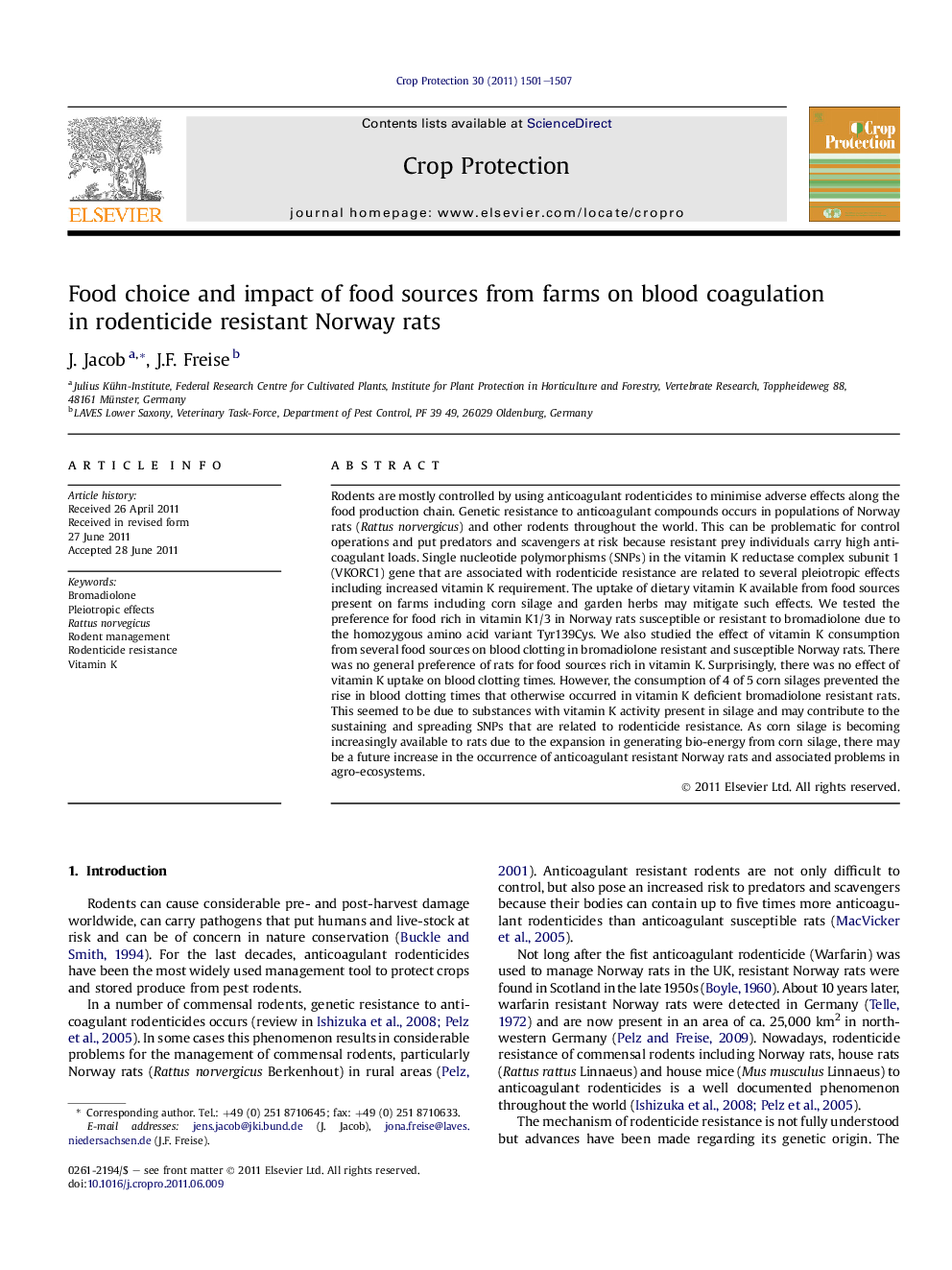| Article ID | Journal | Published Year | Pages | File Type |
|---|---|---|---|---|
| 4506604 | Crop Protection | 2011 | 7 Pages |
Rodents are mostly controlled by using anticoagulant rodenticides to minimise adverse effects along the food production chain. Genetic resistance to anticoagulant compounds occurs in populations of Norway rats (Rattus norvergicus) and other rodents throughout the world. This can be problematic for control operations and put predators and scavengers at risk because resistant prey individuals carry high anticoagulant loads. Single nucleotide polymorphisms (SNPs) in the vitamin K reductase complex subunit 1 (VKORC1) gene that are associated with rodenticide resistance are related to several pleiotropic effects including increased vitamin K requirement. The uptake of dietary vitamin K available from food sources present on farms including corn silage and garden herbs may mitigate such effects. We tested the preference for food rich in vitamin K1/3 in Norway rats susceptible or resistant to bromadiolone due to the homozygous amino acid variant Tyr139Cys. We also studied the effect of vitamin K consumption from several food sources on blood clotting in bromadiolone resistant and susceptible Norway rats. There was no general preference of rats for food sources rich in vitamin K. Surprisingly, there was no effect of vitamin K uptake on blood clotting times. However, the consumption of 4 of 5 corn silages prevented the rise in blood clotting times that otherwise occurred in vitamin K deficient bromadiolone resistant rats. This seemed to be due to substances with vitamin K activity present in silage and may contribute to the sustaining and spreading SNPs that are related to rodenticide resistance. As corn silage is becoming increasingly available to rats due to the expansion in generating bio-energy from corn silage, there may be a future increase in the occurrence of anticoagulant resistant Norway rats and associated problems in agro-ecosystems.
► We tested diet effects on blood coagulation in rodenticide resistant Norway rats. ► Consumption of corn silage normalised blood coagulation in vitamin K deprived rats. ► This may support the spread of resistance mutations and cause problems in rat management. ► The causative agent is not vitamin K1.
